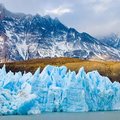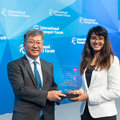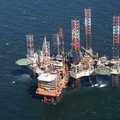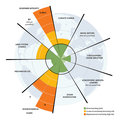Archive
27 May 2022
Vening Meinesz Medal is awarded to Peter J. G. Teunissen

The 2022 Vening Meinesz Medal is awarded to Peter J. G. Teunissen for pioneering and influential work ranging from fundamental geodetic theory to breakthrough innovations in Global Navigation Satellite System modelling and precise positioning.
24 May 2022
Climate change also measured by the sound of glaciers

In winter, glaciers are silent. But in the summer, it turns out that they generate infrasound through calving ice and meltwater. This is an inaudible sound to humans, but is picked up by high resolution measuring instruments.
23 May 2022
Phd. Malvika Dixit wins prestigious award with research in inclusive mobility

Friday May 20, Phd. Malvika Dixit (Department of Transport & Planning) received the Young Researcher of the Year Award 2022*. The award ceremony took place during the International Transport Forum (ITF) in Leipzig. This year's theme was inclusive mobility, which requires increasing attention on many topics, such as accessibility, gender, and income. Together with a team from Delft University of Technology, Malvika conducted research in Amsterdam into how income levels can determine the distance travelled and the fares paid on public transport.
16 May 2022
Can TU Delft still work with the oil industry?

Delft's climate mission no longer makes working with the oil industry a given. Prof. Dr. Giovanni Bertotti (Geoscience and Engineering (GSE)) works at the department with the most collaborations in the oil and gas industry. The shift from fossil to renewable energy is taking place slowly but irreversibly. What does that mean for collaborations?
16 May 2022
A planetary boundary for green water

Water is the bloodstream of the biosphere, but we are profoundly changing the water cycle. This is now affecting the health of the entire planet, making it significantly less resilient to shocks. A reassessment of the planetary boundary for freshwater indicates that it has now been transgressed, according to a recent assessment. The paper was performed by an international consortium, led by by Stockholm Resilience Centre, and published on Nature, April 2022.